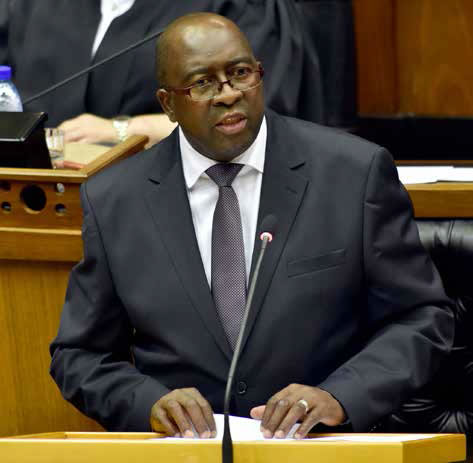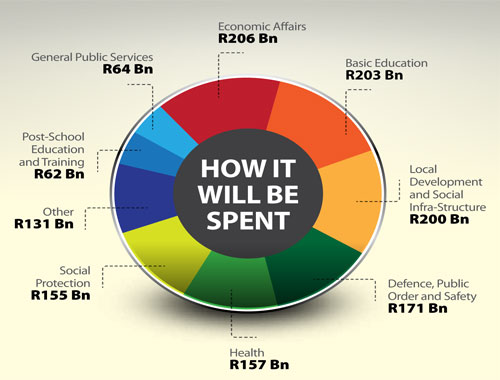Budget 2015: A tough balancing act
Budget 2015: A tough balancing act Estelle GreeffBudget 2015
Despite the weak global economic conditions, and the country’s strained resources, the 2015 Budget still managed to show Government’s commitment to improving the lives of the poor.
 Like many other countries, South Africa, since 2009 has shown low economic growth and an increased government debt.
Like many other countries, South Africa, since 2009 has shown low economic growth and an increased government debt.
The 2015 Budget announcement was there-fore a tough balancing act for Finance Minister Nhlanhla Nene.
The good news in the Budget is that it will bring relief for low-to-middle income earn-ers with regard to income tax; increase social grants, which provide support to vulnerable citizens in our communities and more money will be spent on education and health.
New Growth Path
Coupled with rising debt, the Minister’s budget needed to set the country on a path of growth by addressing challenges that slow growth – like the energy crisis – create work opportunities and broaden economic participation.
The Minister knew he had a task of cutting expenditure over the next two years, and he had to raise revenue (income) from taxes to raise an extra R12 billion in revenue (income) to help fund the budget for this year and another R15 billion for next year.
He also needed to narrow the budget deficitto 3.6 per cent.
This was to be the most important budget in 21 years, and despite these challenges, the Minister needed to ensure that this year’s budget is in-line with the goals of the National Development Plan (NDP).
“The 2015 budget is aimed at rebalancing fiscal policy to give geater impetus toinvestment, to support enterprise develop-ment, to promote agriculture and industryand to make our cities engines of growth,” the Minister said in his speech.
 Employment & enterprise development
Employment & enterprise development
Government continues to prioritise finding ways to create jobs for South Africans.
“These include tax incentives for employment and investment, support for enterprise development, skills development and employment programmes,” said the Minister.
The following will be allocated over the MTEF period:
- R10.2 billion allocated to manufacturing development incentives and support for growing service industries.
- R5.4 billion to the manufacturing competitiveness enhancement programme to assist 1 450 companies with financial support to upgrade facilities and skills development.
- R3.5 billion allocated to special economic zones for infrastructure development. • R3.5 billion allocated to the Department of Small Business for mentoring and training support to small businesses
- R4 billion allocated to The Jobs Fund in partnership with the private sector on projects that create new employment, support work-seekers and address structural constraints to more inclusive growth.
- R11.8 billion allocated to the Department of Environmental Affairs to fund more than 107 000 full time equivalent jobs and 224 000 work opportunities through environmental EPWP programmes.
- R590 million allocated to the Green Fund over the medium term, for strategic environmental projects in partnership with the private sector.